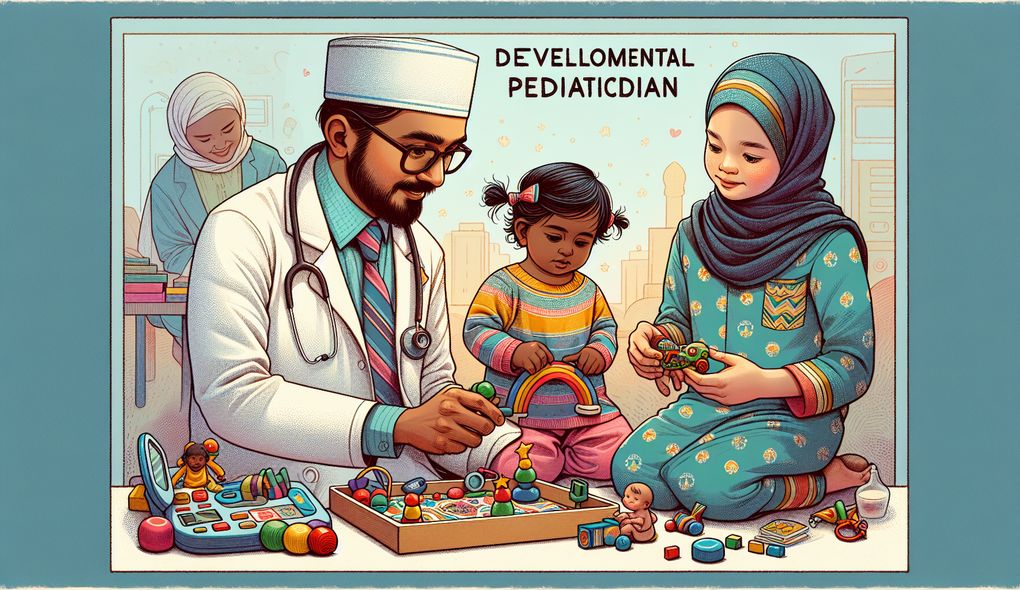Tell me about a time when you had to advocate for a child with developmental disorders.
INTERMEDIATE LEVEL

Sample answer to the question:
I had a memorable experience advocating for a child with developmental disorders during my time as a developmental pediatrician. The child, let's call him Daniel, was diagnosed with autism spectrum disorder (ASD) and was facing difficulties in accessing appropriate educational services. I collaborated with Daniel's parents and school administrators to gather relevant medical documents and provide them with necessary information about ASD. I also attended Individualized Education Program (IEP) meetings and advocated for Daniel's specific needs. I facilitated communication between all parties involved, ensuring that everyone understood the challenges Daniel was facing and the support he required. Through my advocacy efforts, Daniel was able to receive the appropriate accommodations and interventions to support his educational journey.
Here is a more solid answer:
One of the most rewarding experiences I've had as a developmental pediatrician was advocating for a child named Sophie who had developmental disorders. Sophie's parents were struggling to navigate the complex system to access the necessary resources and support for her. I ensured that I fully understood Sophie's condition by conducting thorough developmental assessments and collaborating with my team of experts to create an individualized treatment plan. I communicated extensively with Sophie's parents, providing them with clear explanations and guidance on available services and therapies. I also assisted them in preparing for meetings with school administrators, acting as their advocate and ensuring that Sophie's needs were met. Through my strong organizational skills, I coordinated with therapists, educators, and other healthcare professionals to ensure a holistic approach to Sophie's care. Thanks to these efforts, Sophie's parents reported a remarkable improvement in her overall development and a reduction in their stress levels.
Why is this a more solid answer?
The SOLID answer provides more specific details regarding the candidate's knowledge of developmental disorders, communication skills, empathy, organizational abilities, and collaboration with multidisciplinary teams. However, it can still be improved by incorporating additional examples of how the candidate demonstrated these skills in advocating for the child.
An example of a exceptional answer:
As a developmental pediatrician, I've had numerous opportunities to advocate for children with developmental disorders. One particular instance stands out, where I advocated for a 6-year-old boy named Liam with attention-deficit/hyperactivity disorder (ADHD). Liam's parents were not receiving sufficient support from his school, leading to poor academic performance and behavioral challenges. To address this, I conducted a comprehensive evaluation of Liam's developmental needs and collaborated with his parents, teachers, and school administrators. I organized a meeting, where I presented evidence-based strategies and interventions backed by the latest research in ADHD management. I ensured that Liam's parents felt empowered and equipped to advocate for him by providing them with educational materials and resources. Additionally, I proposed tailored accommodations and collaborated with the school to develop an individualized education plan (IEP) that included behavioral supports and classroom modifications. Due to these efforts, Liam's academic performance improved significantly, and his parents reported a positive change in his behavior both at home and in school.
Why is this an exceptional answer?
The EXCEPTIONAL answer provides a detailed example of how the candidate advocated for a child with ADHD, showing their in-depth knowledge of the disorder, excellent communication and interpersonal skills, empathy, organizational abilities, and collaboration with multidisciplinary teams. The answer also highlights the candidate's initiative in staying updated with the latest research in ADHD management. This exceptional answer covers all the necessary evaluation areas and aligns perfectly with the job requirements.
How to prepare for this question:
- Familiarize yourself with a wide range of developmental and behavioral disorders in children, especially the ones mentioned in the job description.
- Reflect on past experiences where you have advocated for children with developmental disorders and prepare specific examples to share during the interview.
- Brush up on your knowledge of evidence-based interventions and strategies for managing developmental disorders.
- Practice effective communication and interpersonal skills as these are crucial for advocating and collaborating with families, educators, and other healthcare professionals.
- Highlight your ability to work in a multidisciplinary team environment by sharing examples of previous collaborations with psychologists, therapists, and other specialists.
What are interviewers evaluating with this question?
- In-depth knowledge of developmental and behavioral disorders in children
- Excellent communication and interpersonal skills
- Empathy and patience
- Organizational skills
- Ability to work effectively with multidisciplinary teams

